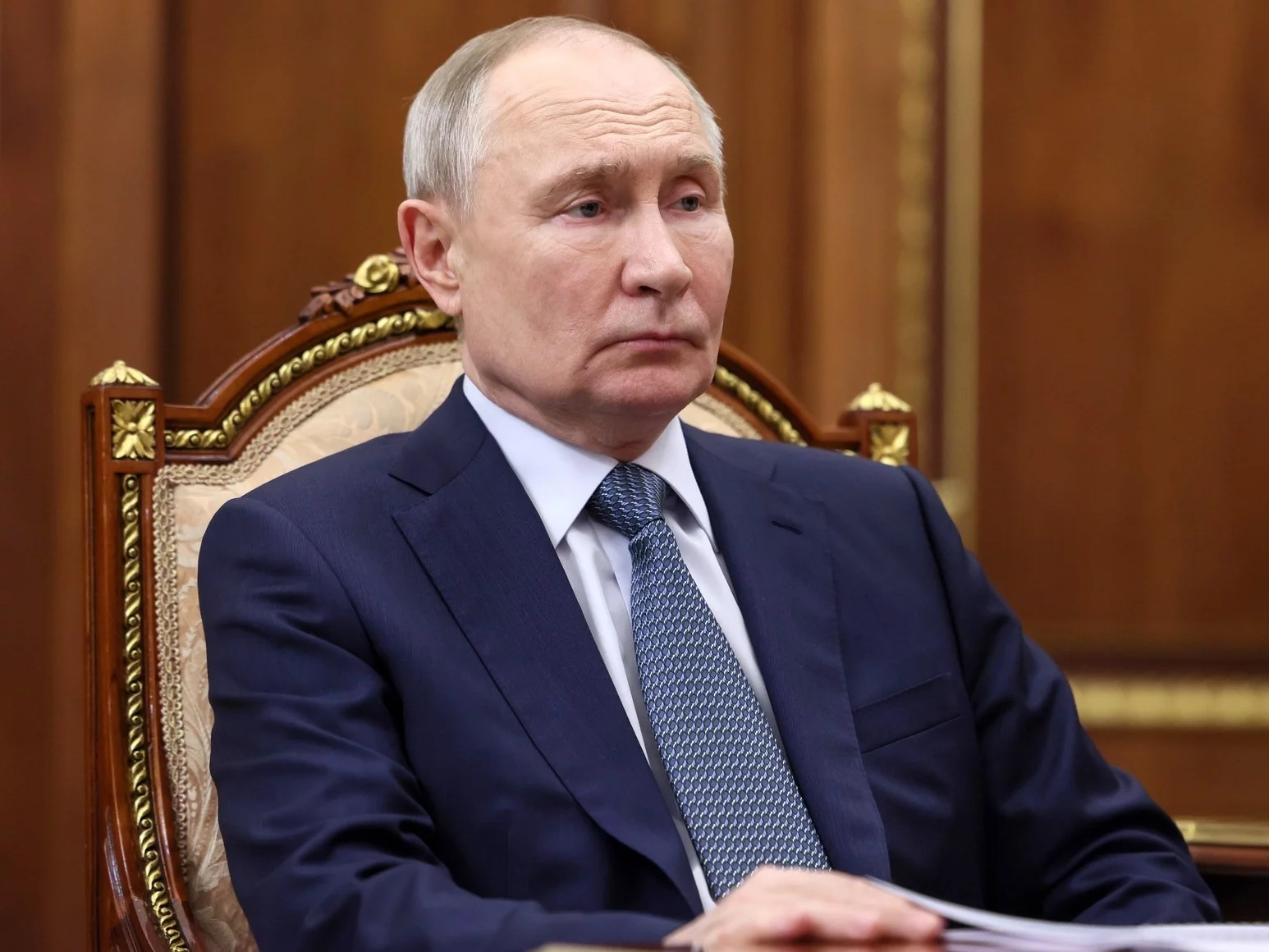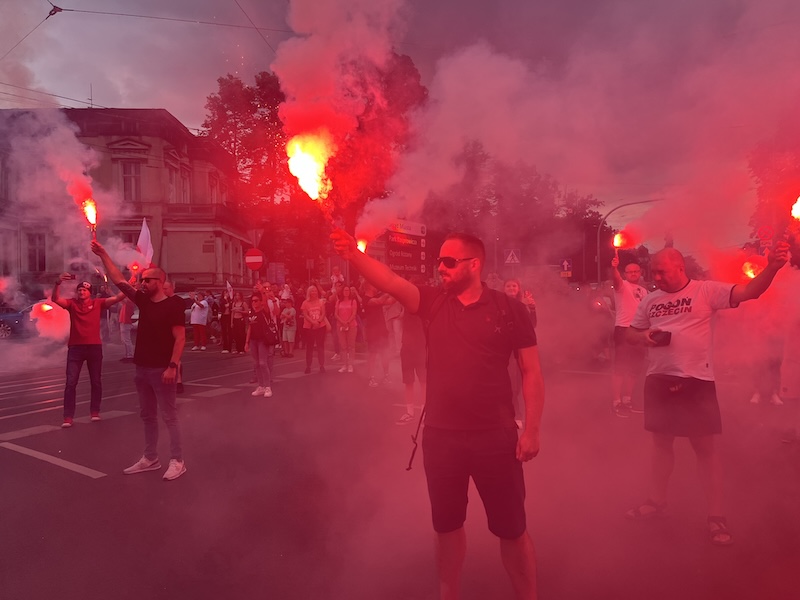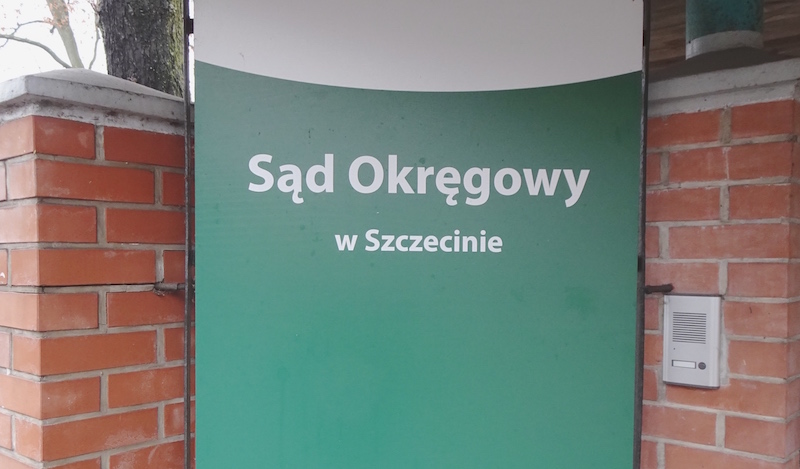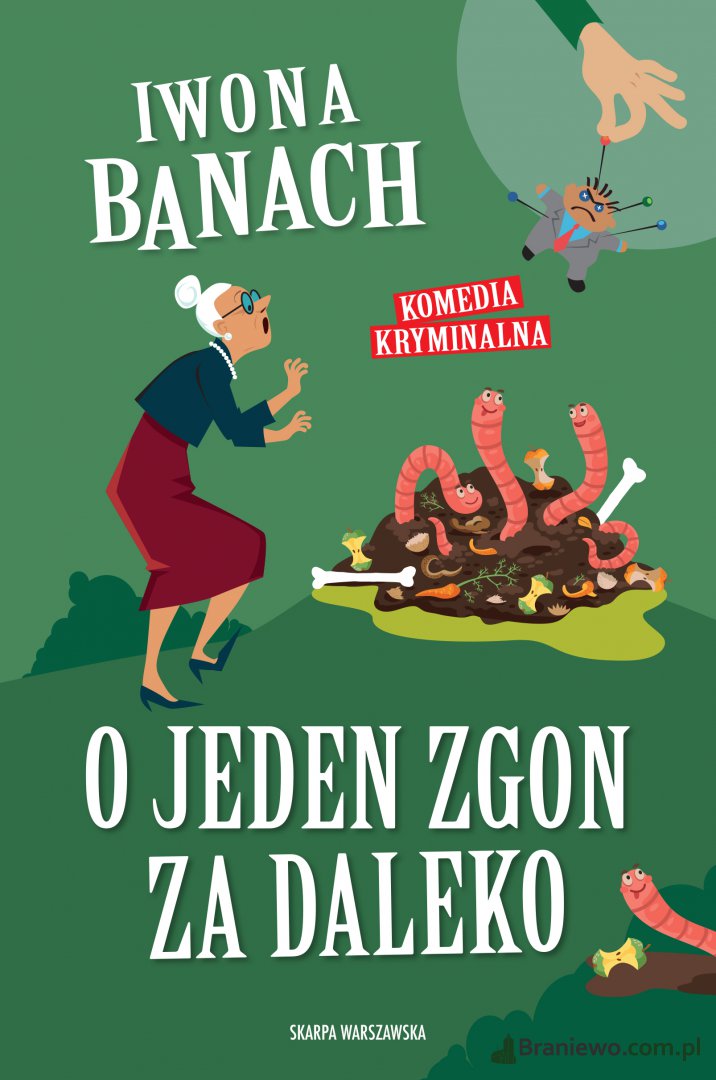The Warsaw Uprising, launched on 1 August 1944, is 1 of the most tragic and symbolic events in the past of Poland of the 20th century. For many decades it functioned in Polish national consciousness as an act of heroic revelry, a evidence of the relentless will of freedom and independence. However, not all participants in the political and ideological life of the Second Republic and the Polish Underground State shared this enthusiasm. The national environment mostly had a clear sceptical and sometimes even condemning attitude to the decision to rise.
After the defeat of the September 1939 run and the beginning of the business of Poland by Germany and the USSR, the national environment, like another political camps, began to make conspiracy structures. As early as October of that year, the National Military Organization (NOW) was established, which was to be the armed arm of the National Party. The intent of the NOW was to organize opposition to both occupiers while maintaining the ideological and organizational integrity of the pre-war national camp.
NOW has developed mainly in Warsaw, Krakow, Lviv and another large urban centres. She was structurally subordinate to the political goals of the National organization – she emphasized not only the armed struggle, but besides the promotion of national education, formation and ideological discipline. She focused alternatively on building organizational force, establishing leadership and securing Poland's national future after the war.
In time, part of the NOW was merged with the National Army – this process began in 1942 and continued in the following months. However, integration was not complete or without conflict. A large number of activists and NOW officers opposed the integration with the AK due to ideological differences and concerns about the dominance of sanitational ethos in the AK structures. From these tensions, an alternate organizational concept was born, which led to the formation of the National Armed Forces (NSZ). The NSZ was formed formally in September 1942 as a combination of a part of NOW, which rejected the unitial agreements with the AK, with separate national groups operating in the conspiracy, including youth environments and the armed arm of ONR “ABC”, or the Military Organization of the Lizard Union. Their goal was not only to fight German and russian occupiers, but besides to prepare to take power after the war ended. The NSZ built their own military, intelligence, propaganda and administration network, and developed plans for the future political order of Poland based on Catholic-national principles.
One of the key ideological backgrounds forming the NSZ facilities was the alleged “Szaniec” Group – a ellipse of publicists, activists and conspirators associated with the pre-war letter “Szaniec” and the body “Walka”. They were people of the younger generation inspired by the thoughts of Adam Doboszyński, Jan Mosdorf and Zygmunt Dziarmaga, who gave the national movement during the war a more radical, ideologically coherent character. This group not only shaped the NSZ programme, but besides was liable for many ideological publications and political instructions distributed in conspiracy structures.
In addition to fresh and NSZ, another national initiatives besides functioned in the conspiracy. More crucial are the National People's Military Organization (NLOW), which was created in late 1939 as a consequence of the failure to recognise the legality of the October gathering of the National Party. Its founders were SN activists from the erstwhile faction of young Jędrzej Giertych and Kazimierz Kowalski: Karol Stojanowski and Jan Matłachowski. The NLOW, despite its low numbers, conducted intensive local activities and combined national ethos with social concern. In addition, there were besides various local opposition groups with national ideology, which over time were integrated by larger organizations. All these structures shared a common feature: subjecting the armed conflict to a deeper ideological goal. The national movement did not treat the fight against the occupier as a goal in itself, but as a tool leading to the revival of a state based on Catholic, hierarchical and national principles. Thus, his skepticism was based on spontaneous, risky or politically unthinkable actions.
Critical attitude to the outbreak of the uprising in the capital
The attitude of national groups towards the decision to start the Warsaw Uprising was fundamentally skeptical – sometimes even critical. Unlike many activists of the National Army and communities associated with the London government, nationalists did not consider the armed revolt in Warsaw to be strategically justified or politically necessary. Their position was based not so much on deficiency of courage or defetism, but on the deep-rooted belief that the price for this kind of action could prove besides advanced – especially in the context of earlier national experiences and business realities.
One of the loudest critics of the uprising even before it broke out was Adam Doboszyński – the leading ideologist of the national movement, pre-war MP and author of many socio-political writings. In an article published in November 1943 entitled “Economy of Blood”, Doboszyński warned against duplication of errors of the 19th century national uprisings. He wrote: “For 2 100 years of captivity, insurgents instilled their enemies in Poles, drawing benefits from failed rabbles, the main effect of which was the demolition of the most perfect and patriotic individuals of the nation.” He felt that this mechanics of demolition of the national elite was cynically utilized by opponents of Poland, both external and internal.
Doboszyński opposed this logic of "blood economics" – the concept of strategical management of human possible of the nation. In his view, bloodshed could only be justified if it produced real political and military effects. Otherwise, he was unnecessary martyrdom. He wrote with emphasis that insurgent scraps lead to "voluntary offering to slaughter the best national element" – and that it is simply a mechanics which Poland should abandon if it wants to regain sovereignty and rebuild the state possible after the war.
When the fighting in Warsaw began in August 1944, many nationalists felt that Doboszyński's darkest predictions had been confirmed. The NSZ and the surrounding communities of the “Szaniec” published positions in the conspiracy press emphasizing the tragedy of the situation and accusing the ultimate Commission of being besides submissive to political pressures from London and illusions about the russian Union's response. It was clear to the nationalists that the Red Army would not support the uprising, and Germany would usage brutal retaliation against the civilian population. Unfortunately, these predictions proved correct – which only strengthened their conviction that the decision to emergence up was a political mistake.
In an article published after the uprising, in November 1944, Doboszyński wrote directly: “The Warsaw Uprising was not only a tragic mistake but besides a moral bankruptcy of the people who started it.” He accused the AK command not only of irresponsibility, but besides of yielding to a romanticist imagination of the upheaval that did not take into account strategical calculation or concern for the lives of the civilian population. The summary of the All-Polish Youth published at the same time was equally sharp. “The Warsaw Uprising has caused Poland unscathed losses, but almost no benefits. The insurrection is simply a criminal crime for which certain Polish centres are responsible. That's what society said, that's what they look like in reality. Older politicians abstain from taking a clear stand on these events. We young people think that only a clear awareness of the fact can clear the atmosphere. The guilty must be held responsible, only in this way will they be able to keep the authority of our institutions and authorities. They are permanent, independent of the people who exercise them and are liable for their conduct Young activists wrote.
It was the concern for the nation's "biosubstancy" – for its future staff, youth, intelligence, clergy – that was crucial for the nationalists. Their skepticism of the uprising was not an expression of opportunism, but of a consistent attitude that assumed that the nation had to rebuild alternatively than destruct itself. Therefore, they rejected the thought of "a sacred work to fight at all costs", considering it naive and possibly destructive.
However, the reality of August 1944 proved more complicated than ideological declarations. erstwhile the order to fight became a fact made, NSZ and NOW soldiers present in Warsaw in the vast majority joined the fight – frequently without formal order from their superiors, but out of a sense of moral work to the city and comrades. According to various estimates, the Uprising was attended by 1500 to as many as 4,800 soldiers associated with the national environment – including full companies and platoons operating within the AK or independent NSZ-AK troops.
It was an act of conscious suspension of ideological differences for the common intent of defending Warsaw. As 1 of the participants of the “Chrobry II” group wrote years later, nationalists “They did not come to the Uprising as enthusiasts of the AK's leadership policy, but as Poles, who did not belong to stay at home erstwhile their city burned.” This evidence well reflects the complex relation between perfect criticism and applicable choice – a choice that meant conflict and sacrifice.
In summary, the nationalists saw the Warsaw Uprising as a mistake – both from the point of view of the war strategy and the national interest. Their criticism was based on a long-term reflection on the destiny of Poland and the national elite, which besides frequently died in break-ups without a chance to win. The concept of the "blood economy" of Doboszyński was not only an effort to analyse the current situation, but besides a deeper reflection on what patriotism should be in times of trial – not only emotion, but besides work for the future of the nation. At the same time, their attitude in August 1944 proves that it was not a cold or inhuman ideology – but based on a deep sense of duty, which in the hr of trial prevailed over political calculation.
Fight
Despite erstwhile doubts and criticism, as shortly as the first shots were fired in August 1944, the nationalists (both soldiers of the National Military Organization and the National Armed Forces) entered the Warsaw Uprising with full commitment. Contrary to popular belief that their skepticism may have resulted in passiveness, they actually proved to be highly disciplined, determined, and same - sacrificing. In practice, almost all the members of these formations present in Warsaw took part in the fight, subjecting themselves to the structure of the Home Army or acting in autonomous NSZ-AK branches.
It is estimated that about 1,500 to 4,800 NSZ soldiers and about 1,000 NOW members participated in the uprising. The differences in numbers arise from difficulties in documentation and dispersal of branches, which frequently fought under cryptonyms or in transition structures. In fact, many national branches operated under the name of the AK, sometimes temporarily following groups specified as “Chrobry II” or “Radosław”, where the organizational structure was little crucial than the combat capacity and loyalty to the common goal.
An example of the engagement of nationalists is the company “Warsaw” associated with the NSZ, which operated mainly on Wola and Śródmieście. It consisted of about 80–170 soldiers, including both pre-war activists and young conspirators. They fought with large sacrifice, defending, among others, the simplification at Ogrodowa Street, and their participation in the fights is considered to be 1 of the better organized episodes of the NSZ in the Uprising. Another crucial centre of the presence of nationalists was the "Chrobry II" group, where members of the NSZ were fighting, among others, connected with the AK and unrelated to the national movement Witold Pilecki. 1 of the most celebrated figures was Lt. Jerzy Sienkiewicz, ps. „Jur”, who commanded 1 of the platoons and died in combat in Śródmieście. His attitude was an example of this national courage, which despite criticism of the political decision to emergence up did not refuse to fight alongside the inhabitants of the capital.
It is besides worth mentioning the figure of Stanisław Kashnica, later the last chieftain of the NSZ, who, although not fighting straight in the Uprising, played an crucial function in coordinating the activities of the NSZ in the General Governorate. During this time, he supported the transfer of people and resources to Warsaw. The largest compact branch of the NSZ, which participated in the fights in the capital itself, was the Disposal-Motorized Brigade “The Circle”. This formation defended the Old Town, fighting hard alongside another insurgent units. “Baczyński” Reconnaissance Regiment and NSZ Academic Legion were operating. The units of artillery – the “Mlot” motorised artillery division – and the formations of the gendarmerie, like the “Barry” division of Major Włodzimierz Kozakiewicz, were besides active in the “North” Group of the Home Army. 2 symbolic NSZ divisions were besides formed. The 1st Infantry Division was established on 8 August and included the Gen. Władysław Sikorski Regiment, Gen. Jan Henryk Dąbrowski Regiment and Stefan Czarniecki Hetman Regiment. At the same time, a Group of the 2nd Infantry Division was established, consisting of the 4th Infantry Regiment, the Pulawska Legion and the General Romuald Traugutt Regiment. Smaller companies and specialised troops were besides included in the fight in the capital, specified as the Armoured Company of Captain ‘Jury’, the Company of Lieutenant Leonard Kancerczyk, ‘Jeremi’, the Company of ‘Piats’ under Czesław Kajetan Stulkiewicz, ‘Wir’ and the Company of ‘Tadeusz Black’, Lieutenant Tadeusz Słomiński. The command branches of Warsaw-Śródmieście-South Square besides operated. The “Gozdawa” Group besides included soldiers of the Stefan Czarniecki Battalion.
The National Military Organization exhibited, among others, the “Gustaw” Battalion, which fought in the First Oblast in the Old Town and the “Harnaś” Battalion from Śródmieście (they included Wiesław Chrzanowski and Witold Kieżun)
Along with the armed struggle, the nationalists besides took part in auxiliary activities: the operation of insurgent hospitals, the sale of press, communications, the construction of barricades. Women associated with the national camp served as paramedics and liaisons, frequently at hazard of life. Their engagement was besides not accidental – it was due to the strong ethics of the service and sacrifice the national camp included in its upbringing of young people. The attitude of nationalists in the Warsaw Uprising was besides a evidence to their ability to compromise in the face of a higher order threat. Although politically separate and frequently conflicted with the leadership of the AK, they put off disputes during the fighting, recognizing the request for national unity. This decision, although pragmatic, besides had a moral dimension. National troops showed no sign of inactivity; on the contrary, they fought equally with others, and their sacrifice fits into the heroic ethos of August ’44.
For many people, especially those from experience planet War I and the subsequent conflict for the borders of the Republic, patriotism did not mean spontaneous rebellion, but work for the future of the nation as a whole. Critics of this attitude accuse her of pragmatism bordering on opportunisticism, indicating that in moments of trial the nation must be prepared to sacrifice, even if its effectiveness is uncertain. However, the nationalists did not question the value of the victim as such, but they questioned the reasonableness of the unthought - out, unsupported, chance of real political or military gain.
This contrast is best seen in comparison with the dominant military act in the AK, derived from the tradition of Piłsudski and legionary imagination of politics. While the AK assumed that an armed speech in the capital would be a political and moral signal for the planet and an component of the construction of the future sovereignty of Poland, the nationalists believed that effectiveness alternatively than symbolicism should be a criterion for assessing war activities. Hence, their opposition to the uprising, which in their opinion did not have adequate political or military background. On the another hand, national criticism has not crossed the line of loyalty. erstwhile the uprising broke out, the same people who considered them a mistake the day before took hold of the weapon and fought. This minute is crucial to knowing their attitude: the nationalists distinguished political assessment from moral responsibility. They considered the decision to emergence to be unreasonable, but fighting for Warsaw in a situation made, as a duty. In this sense, their action was an expression of profoundly rooted national ethics, which connected reason with loyalty to the community.
Nationalists have shown that even deep skepticism towards political calculations does not exclude the highest sacrifice to the community. Their attitude, long silenced and marginalized, present demands an honest place in historical memory. due to the fact that although they looked at the Uprising differently than its initiators, they died on the same barricades — for the same Warsaw.
Magdalena Korczak














